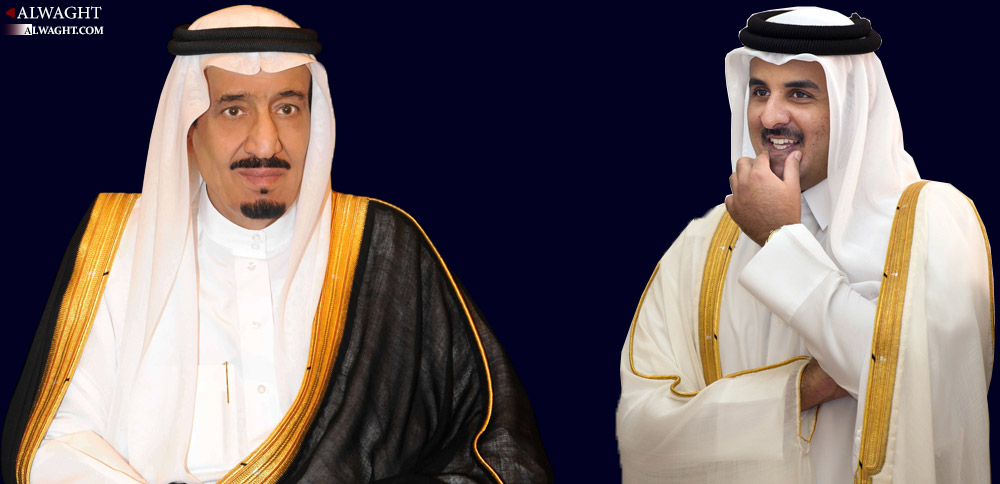Alwaght- Qatar, an actor with multifaceted approaches towards regional developments, has recently unveiled a new aspect of its policy towards Saudi Arabia and the recently announced Western-Arab alliance.
Recently, Qatar’s state-run news agency released comments attributed to Qatari Emir Sheikh Tamim bin Hamad Al Thani criticizing the US and Persian Gulf Cooperation Council’s approach towards Iran that unleashed a controversy on the Saudi and Emirati social and official media.
The fresh development supports the theory that tensions between Riyadh and Doha which date back to a couple years ago still exist and that Qatar is aiming at improving relations with Iran while Saudi Arabia is busy building a regional alliance meant to confront Tehran's growing influence across the West Asian region.
For reasons intensifying fresh escalation between the two Persian Gulf Arab states can be listed as below:
1. Qatar’s deep-rooted differences with Saudi Arabia
Qatar has bilateral, inter-Arab, and regional rifts with Saudi Arabia. In fact, border conflict along with the differences in neighboring countries' approaches towards regional development and actor involved there have cast an air of historical pessimism over the two states relationships. Indeed, Doha, although, is ostensibly consistent with the decisions of the Persian Gulf Cooperation Council and the Arab League, when it comes to implementing the bodies' resolutions Qatar acts independently and sometimes contrary to them.
2. Doha's pragmatic approach
Still another issue that shapes Qatar’s behavioral pattern is its pragmatic performance that is based on a balance which simultaneously focuses on realizing the national interests on the one hand and minimizing the small sheikhdom's vulnerability on the other hand. Having in mind that Qatar is a minor actor on the global power’s structure, Doha hope for adopting such an attitude compensate for its deficit of size and power of influencing.
Doha’s multi-leveled relations with an array of players including the global powers, regional states, and non-state actors define its pragmatic worldview.
3. Supporting Iranian-Arab dialogue
Another element stirring the Doha-Riyadh rift is Qatar’s almost persistent will to see the Arab countries in talks with Iran. The Doha leaders have always announced readiness to mediate between Iran and Saudi Arabia, two regional rivals, arguing that negotiations can clear up any misunderstanding in their relations. Such stances can be assessed as part of Qatar's attempts to create balance in its relations with Iran and Saudi Arabia. It actually seeks taking advantage of Tehran and Riyadh disputes to boost its regional role.
4. Trump’s shift of approach
There is a fourth factor that explains Qatar's behavior at the present time. The American President has showed signs of shift in Washington-Doha friendly ties under Obama administration. Trump administration threat to relocate American forces from Qatar’s Al Udeid air base to Saudi and Bahraini bases, and Qatar's backing for Hamas movement and Muslim Brotherhood, both blacklisted by Washington and its Arab allies as terrorist groups are indicative of differences between the US and Qatar that is pushing the latter to establish closer relations with Iran as a regional power.



























